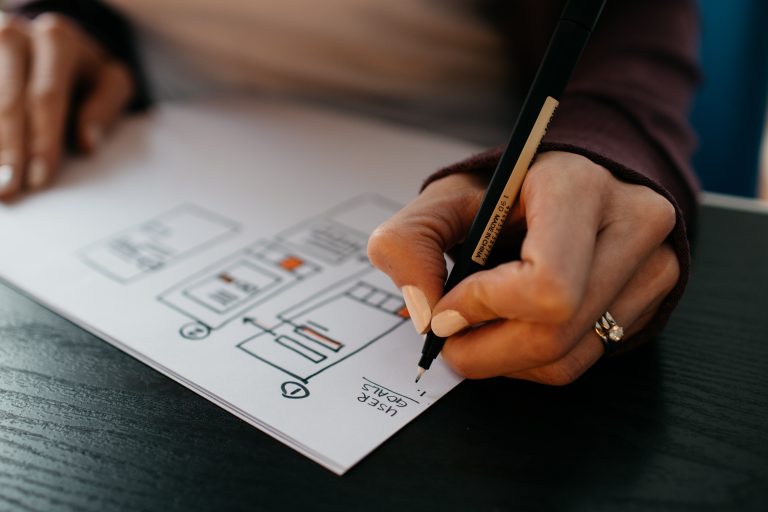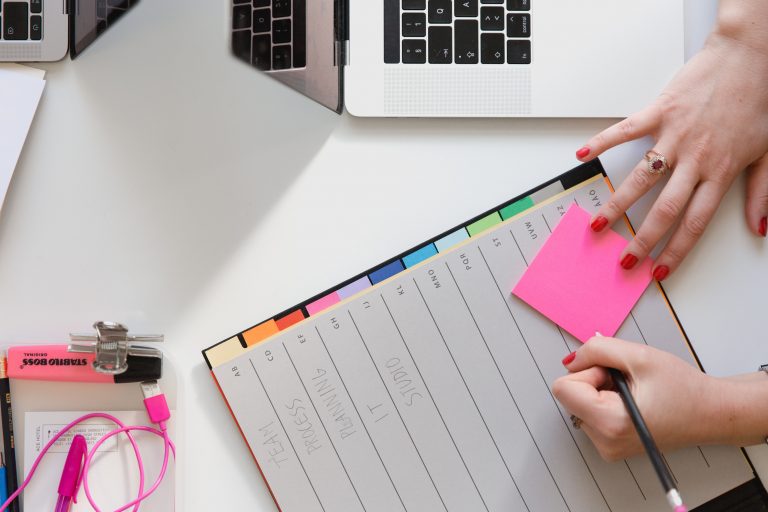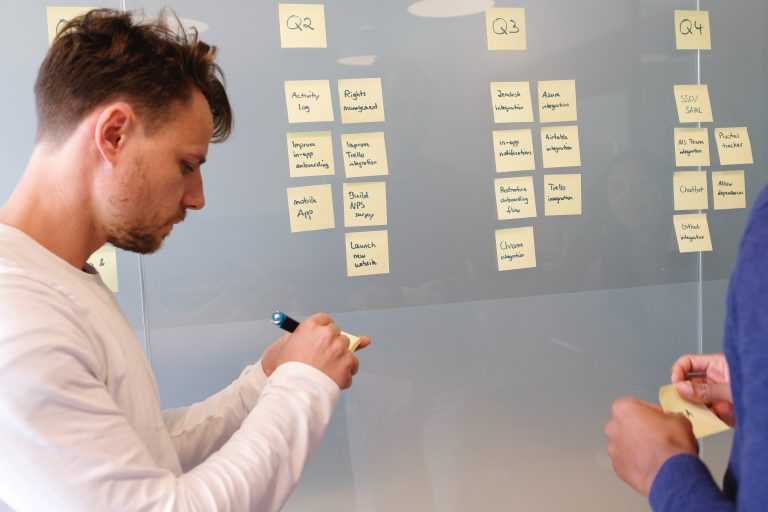Productivity is often linked to following routines. It is an obvious match: the more you follow a standard set of habits, the more you’ll get better and faster at doing them. But following a daily pattern of habits and actions is not as simple as it’s said to be, and some people can have a hard time trying to fit the mold. So, how to be productive without a routine?
We’re routine enthusiasts over here. In fact, it’s a neuroscientific fact that most of us thrive with routines from childhood to adulthood. Routines and rituals are highly essential for developing social skills, academic success, and maintaining good health, for example. However, we must acknowledge that exceptions exist, and not following a routine doesn’t automatically mean you can’t be productive.
There are many reasons someone can’t follow or doesn’t like routines. Maybe they prefer the excitement of having a different day every day, or they might deal with neurodivergence such as ADHD. Whatever the motive is, you’ll learn other ways to be productive without a routine over the following lines.
Why do some people not deal well with routines?
The idea of following a routine started as friendly advice in the productivity community but soon became an expectation, setting many people to fail due to intense peer pressure. Because productivity is often related to building and maintaining the ideal routine, productivity literacy tends to neglect the group of people who don’t succeed with it.
Besides the social pressure that comes with starting a productivity journey nowadays, there are many other reasons why someone might want to try different productivity methods other than sticking to a routine.
Personality and lifestyle
For some people, it can be purely related to their personalities and lifestyles. In the bubble of high-productive professionals, it’s easy to forget that not everyone wants or needs to tackle dozens of tasks in a day. Intense and strict productivity and efficiency are choices, and they can have different meanings from person to person. Moreover, disruptive mindsets and behaviors can also lead to success through diverse paths.
Type of work
Another reason not to follow a routine is the type of work. Creativity, for example, is often described as a skill that requires practice but also everyday freedom to explore and get inspired. In that sense, high creativity-demanding professionals such as all forms of artists and artisans might flourish with very flexible, on-the-go lifestyles.
Neurodivergence and mental health
However, the difficulties of following a routine are not always a choice. Some people might have a hard time with it because it demands a high level of determination and self-discipline. Although such criteria are learnable, it’s not an easy task for neurodivergent people or those struggling with mental health disorders.
Is it possible to be productive without a routine?
Productivity is optimizing how you work and live to do things in the most efficient way possible. Even if all productivity strategies require some level of organization and order, you don’t necessarily need a routine to achieve it.
Truth be told, constantly beating yourself up for not having a routine is far more counterproductive than accepting and owning that other methods might be more efficient for you. The ultimate goal is to be productive rather than living all days the same, and there is more than one way to achieve that.
In fact, not following a routine can also do some good for people who are too controlling. For those people, the frustration from a failed daily plan can overcome the joy of the things that went well. As agreeably exemplified by Oliver Burkeman, because strict routines are bound to fail, “rigid-schedules addicts” often suffer from decreased motivation and productivity.
5 tips to be productive without a routine
Follow your energy peaks
Most individuals would want additional hours in the day to squeeze in a few more hobbies, even those who don’t like routines. A great way to make the most of your time without sticking to a standard schedule is to follow your energy peaks.
Many studies have shown that our circadian cycles govern our sleep and hunger, body temperature, and attentiveness, which are directly tied to our performance and weariness. Even so, each person can have distinct energy patterns and peaks, which greatly influence their productivity.
Learning which hours of the day you are most productive and which are better for you to relax or perform lighter chores is critical for being productive without a routine. Observation, trial, and error are the way to go if you want to understand your body better.
Focus on your to-do list
Not following a routine doesn’t mean you don’t have to know what you’ll be tackling in a day. Quite the opposite, you’ll need a task list to provide some structure to your highly flexible day and help you avoid procrastination.
You don’t have to do the same things in the same order every day. However, planning your assignments for the day the night before or early in the morning can put you one step ahead in the productivity game.
Write down your must-dos for the day and plan them accordingly to your energy peaks. This bit of organization will optimize your time expenditure and make your schedule even more flexible!
A tool like Akiflow can help you assemble your to-do list without making you feel overloaded. Try it for free!

Track the time spent on tasks
With a long to-do list and little planning, it will be too easy to feel overwhelmed and procrastinate or to hyper-fixate on a single task and not move on to the next one. The best way to stay focused without following a routine is by tracking the time spent on tasks.
You can track it in detail with a timer or using some method such as the Pomodoro Technique. Doing so will help you better understand how much time you need for each type of task and learn how to allocate them better throughout the day.
Another approach is to set a limited time to execute a task. For example, you have two hours to write a short article. If after those two hours you’re not finished, you have to pause it, move to a new task and come back to the article later or another day.
Minimize distractions
Speaking of distractions, they’re the demise of anyone trying to be more productive, whether you follow a routine or not. All those little focus-shifting habits that seem inoffensive are, in reality, extremely time-consuming.
Each person has their particular triggers for distractions. Some people will spend hours mindlessly scrolling on social media if their phones are visible on their work station. Others will lose track of time chatting with their housemates while working from home.
Map your distractions triggers and find smart ways to avoid them, such as keeping your phone in your bag during your focus time or shutting the door to your office when other people are home.
Track your results
Even if you are following your energy peaks, organizing your to-do list, not getting distracted, and tracking your time, if you’re not getting the desired results, all of that is pointless. Your results will always be the ultimate measurement of whether your productivity strategy is working or not.
So, to be productive with and without a routine, you must have clear goals and know how to track if you’re getting there. Think about what you want to achieve in your professional and personal lives and what are the signs that you’re doing a good job toward those objectives.
Takeaway
Yes, it is possible to be productive without a routine. While you’ll still need some level of organization in your days, there are many other methods to be productive and achieve your goals.
In the end, it doesn’t matter where you fall on the routine/no routine scale as long as you’re satisfied with your performance, results, and lifestyle.

How Strategic Planning can Affect your Productivity
Like all the other good things in the world, productivity cannot be achieved simply either. Without strategic planning, it is highly unlikely that you will employ the utmost productivity you can have at work. What is good to notice here is that you can easily level up your productivity if you know what a crucial […]

Do or plan: staying on top of things with a simple strategy
Given the number of inputs that we receive every day, both in our work and personal lives, it can be difficult to stay on top of everything. Over the years, I have developed a simple strategy that helps me to stay focused, never miss anything, and, ultimately, get things done. In short, my strategy is […]

Best Task Management App For 2023
Have you or your team been struggling to effectively plan and deliver tasks on time? If you’re often missing key deadlines or falling short of effective collaboration, you could benefit from task management software. Task management apps allow you to track time, manage a plethora of tasks, and collaborate efficiently with a wider team. The […]

